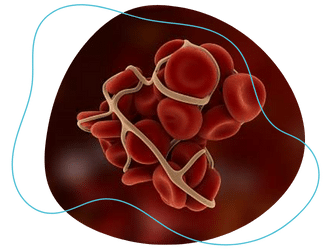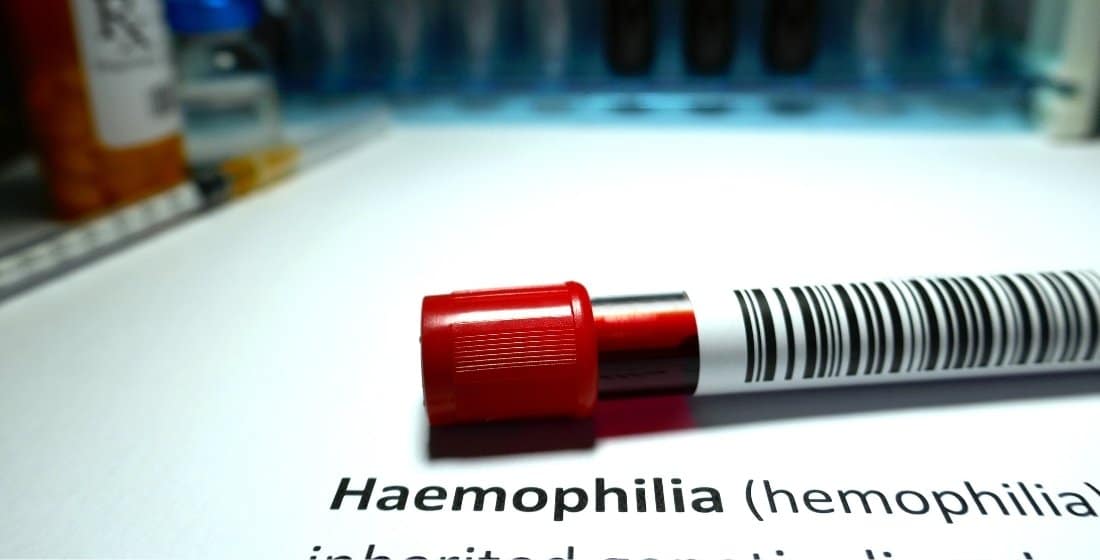World Hemophilia Day, observed every April, is a global campaign to increase awareness of hemophilia and other inherited bleeding disorders. While the traditional management of hemophilia has focused on replacement therapy using clotting factor concentrates, recent advances in regenerative medicine and stem cell research are opening new avenues for potentially curative interventions.

Overview of Hemophilia
Hemophilia A and Hemophilia B are X-linked recessive bleeding disorders caused by a deficiency or dysfunction of coagulation factors VIII and IX, respectively. Current treatment regimens rely on lifelong intravenous administration of these factors, which, while effective, are associated with multiple challenges such as immunogenicity, high costs, limited accessibility, and the need for frequent dosing.
Emerging strategies using stem cells, particularly in conjunction with gene editing, aim to correct the underlying genetic defect and provide sustained endogenous production of clotting factors.
Stem Cell-Based Strategies in Hemophilia Treatment
1. Hematopoietic Stem Cells (HSCs) with Gene Transfer
Hematopoietic stem cells (HSCs) can be genetically engineered ex vivo to express the deficient clotting factor, followed by autologous transplantation. In a Phase 1 clinical trial, a novel lentiviral vector encoding Factor VIII was used to transduce autologous HSCs in patients with severe Hemophilia A, demonstrating stable engraftment and sustained Factor VIII expression with an acceptable safety profile (Roth et al., 2022).
2. Induced Pluripotent Stem Cells (iPSCs) and Genome Editing
Induced pluripotent stem cells (iPSCs) derived from patients can be genetically corrected using CRISPR/Cas9 and subsequently differentiated into liver endothelial cells or hepatocyte-like cells, which are natural sources of clotting factor production. Studies in murine models of Hemophilia A have shown successful expression and secretion of functional Factor VIII following transplantation of corrected iPSC-derived cells (Wang et al., 2022; Shin et al., 2018).
3. Mesenchymal Stem Cells (MSCs) as Gene Delivery Vehicles
Mesenchymal stem cells (MSCs) are multipotent stromal cells with immune-privileged properties and have been studied as vectors for systemic delivery of clotting factors. A 2024 study demonstrated that adeno-associated virus (AAV)-transduced MSCs expressing human Factor IX successfully ameliorated the bleeding phenotype in a Hemophilia B mouse model (Du et al., 2024). Their ease of isolation, low immunogenicity, and homing capacity to injured tissues make MSCs attractive candidates for future clinical translation.

Translating Research into Clinical Practice
Although stem cell–based therapies for hemophilia are still in early clinical stages, the convergence of gene therapy and regenerative medicine has accelerated progress significantly. The key advantages of stem cell approaches include:
- Sustained endogenous production of coagulation factors
- Reduced immunological risk compared to repeated infusions
- Potential for personalized, autologous treatments
- Opportunities for combination with genome editing technologies
Nonetheless, challenges such as vector safety, insertional mutagenesis, immune responses, and manufacturing scalability must be addressed before widespread clinical application.
Stemwell's Commitment to Regenerative Innovation
At Stemwell, a regenerative medicine center based in Bogotá, Colombia, we are dedicated to exploring and supporting safe, science-driven applications of stem cells in clinical practice. While stem cell therapies for hemophilia are not yet approved for general clinical use, our team closely monitors global research developments and actively integrates cutting-edge scientific knowledge into patient-centered care strategies.
We believe that continued investment in translational research will be crucial in bringing these innovative therapies from bench to bedside.
A Future of Hope for Hemophilia Patients
The potential for stem cell therapies to revolutionize the treatment of hemophilia is immense. As ongoing research continues to make strides, the promise of personalized, long-term treatments that correct the underlying genetic cause of this condition is within reach. At Stemwell, we are dedicated to staying at the forefront of regenerative medicine, fostering innovation, and integrating cutting-edge scientific advancements into real-world solutions for our patients. While stem cell therapies are not yet the standard of care, the future holds tremendous promise for transforming the lives of those living with hemophilia.
We remain committed to bringing hope and practical, regenerative healthcare solutions to those in need, and we look forward to the progress ahead in this exciting field.
References
1. Roth, D. A., et al. (2022). Factor VIII Expression from a Novel F8 Transgene Delivered by Lentiviral Vector in a Phase 1 Trial. Blood, 144(Supplement 1): 1052. https://ashpublications.org/blood/article/144/Supplement%201/1052/530510
2. Wang, X., et al. (2022). CRISPR-Corrected iPSC-Derived Endothelial Cells Restore FVIII Expression in Hemophilia A Models. Nature Communications, 13:1120. https://pubmed.ncbi.nlm.nih.gov/35217482/
3. Shin, S., et al. (2018). Gene-corrected iPSCs for Hemophilia B produce functional hepatocyte-like cells. Cell Reports, 23(8): 2492–2501. https://pubmed.ncbi.nlm.nih.gov/29719266/
4. Du, Y., et al. (2024). AAV-transduced MSCs expressing hFIX in a mouse model of Hemophilia B. Stem Cell Research & Therapy, 15: 58. https://stemcellres.biomedcentral.com/articles/10.1186/s13287-024-03824-y
Ready to learn more about stem cell therapy?

At Stemwell, our team of doctors are highly skilled in successfully supporting thousands of people with a range of stem cell treatments. If you would like to learn more about stem cell therapy you can contact us with any questions, or apply today to check your eligibility.

